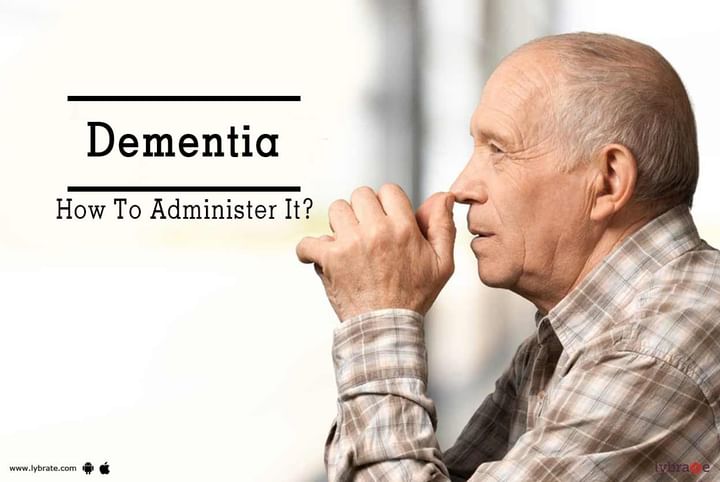Dementia - How To Administer It?
Ageing is a natural process, and as much as we don’t like it, it is inevitable. The effect of ageing is different from different organs, and with regard to the brain, dementia is one of the main effects. Dementia is not an isolated condition, but a set of symptoms that include decreased memory and reduced thinking ability, making it difficult for the person to perform daily activities efficiently. Ageing is one of the main causes of dementia. Dementia is usually progressive, with a person beginning to forget his/her purse, taking pills, etc., and then progressing to forget more important things like close family members’ names or finding one’s way back home.
Though dementia is not reversible, it is possible to control the rate of progression and arrest symptoms if detected in the early stages. There are various reasons for dementia, with senility or ageing being one of the main reasons. Alzheimer’s, vascular dementia, hypothyroidism, depression, etc., are some of the other reasons and treating these can help control the symptoms of dementia. Treatment for dementia would include a combination of medications aimed at treating the underlying reason for dementia and supportive palliative care, which forms a huge component of the treatment, which includes the following:
- Vitamin B12 replacement in people with vitamin deficiency
- Treat hypothyroidism with thyroid replacement
- Manage depression with antidepressants
- Change or substitute medications leading to memory loss
- Mild to moderate Alzheimer’s disease can be controlled with acetylcholine esterase inhibitors like rivastigmine and galantamine; more severe forms with memantine hydrochloride.
- Manage behavioural changes with antipsychotics
- Recommend surgical removal if there are brain tumours that cause increased pressure
- Treat brain infections like encephalitis, if present.
- Manage risk factors by managing high blood pressure, cholesterol, diabetes, and quitting smoking
In addition to the above, supportive palliative care is also very essential. The intention is not to cure, but to improve patient care by including the following:
- Help the affected person become independent and manage daily activities on their own.
- Include cognitive stimulation with activities and games to improve memory and cognitive functioning.
- Validation therapy and behaviour therapy are also used, depending on the symptoms.
- The affected person would usually feel mixed feelings of anger, fear, anxiety, and sadness. To address this, use medications that improve the mood, control the behaviour and improve cognitive functions. Support and counselling from friends and family are very helpful.
- As much as it might be uncomfortable, decisions such as caretaker, type of care, financial planning, etc., should be discussed and decided.
As dementia is irreversible, the key is to detect the symptoms in their early stages. This will help in effective management by arresting the symptoms from progressing, thereby improving the quality of life.



+1.svg)
